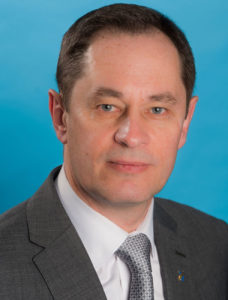Abstract
Database technology has become an integral part of our daily lives as the best way to organize and store data, providing important performance features such as ensuring data integrity, consistency, security, data privacy and providing quick access to data. This technology is able to operate even with very large amounts of data without significant performance losses. At this point in time, databases are the de facto standard in the field of data storage. The taught discipline aims to study the basic principles of data modeling, the fundamentals of database technology, as well as the acquisition of sustainable skills in designing and developing databases using modern DBMS. Understanding the principles of database organization and knowledge of the SQL query language will help students to work freely with existing databases and develop their own. A feature of the discipline is mastering the techniques of working with databases from the R execution environment. The course is based on the materials of lectures and laboratory works of the discipline “Data Models and DBMS”, read for students of the Faculty of Radiophysics and Computer Technologies of the Belarusian State University of the first stage of higher education.
What will be studied
A detailed course syllabus is located at link. The program includes seven sections, which include 11 lectures (2 academic hours each) and 6 practical classes (4 academic hours each). Successful mastery of discipline also involves independent work.
Course sections:
- Basic concepts of database technology.
- Basics of infological and datalogical data modeling.
- Relational data model. Normalizing data in a relational model.
- Stages of database design. The entity-relationship model. IDEF1X design methodology.
- DBMS functions. Data indexing. Architecture of multiuser and distributed databases. The concept of a transaction. Architecture of client-server systems.
- SQL query description language.
- MS SQL Server DBMS and Creating databases using DBMS data.
- Organizing access to databases from the R environment.
Requirements for listeners
There are no special requirements for students. Knowledge of special programming languages and higher mathematics is not required. It is desirable that the course participants have previously studied the following academic disciplines:
Course learning materials
- Author’s lectures
- Laboratory work, accompanied by author’s guidelines for laboratory work (according to options)
- Electronic tests based on course materials (testing)
- Course discussion forum (online resource)
- Teacher consultations (chats and emails)
What is the difference between the course and existing analogues?
The course is based on the well-tested course “Data Models and DBMS”, which has been taught to students of the Faculty of Radiophysics and Computer Technology of the Belarusian State University of the first stage of higher education for several decades. This course was taught at this faculty also for students studying in the specialty “Commercial activity in the market of radio electronic means” and showed that students whose profile is far from the IT industry can also learn the discipline. A feature of the taught discipline is mastering the techniques of working with databases from the R runtime environment. The course teachers have completed long-term internships at the Universities of Wageningen and Leiden (Netherlands) and have extensive experience in practical work with databases.
Teachers

Candidate of Physical and Mathematical Sciences, Associate Professor, Head of the Department of System Analysis and Computer Modeling of the Belarusian State University, author of 4 textbooks on databases with stamps of the Ministry of Education and the educational and methodological association of BSU
Enrollment
Admission to the course is based on the results of an interview. The key selection factor is the applicant’s own motivation. At the same time, it should be noted that the educational program of the course is structured in such a way that the student at the start does not require any special knowledge in the field of programming. However, user knowledge of computer technology, as well as programming skills, are welcome.
Form, place and time
The training program can be implemented:
- face-to-face;
- using information and communication technologies (remote conferencing such as Zoom);
- in a mixed form (part of the classes are face-to-face, some are using information and communication technologies);
- on-line (using video lectures, video tutorials and self-study activities; this form of learning is under development).
Classes can be held both in the daytime and in the evening by agreement with the students. The choice of the form of education is also consistent with the desires of the students. All forms of conducting classes include, if necessary, individual and group consultations, which can be held both in the classroom and remotely.
Classes are held on the basis of the State Educational Institution “Institute for Advanced Studies and Retraining in the Field of Informatization and Management Technologies” Belarusian State University.
Course venue: Institute for Advanced Studies and Retraining of Belarusian State University, Minsk, st. Kalvariyskaya, d. 9, room. 730.
Time:
- day time: maximum 5 days a week – 8 academic hours per day (academic hour – 40 minutes) from 9:00 to 18:00. The optimal is 4 academic hours two or three times a week. The exact time and number of classes depends on the workload of classrooms and teachers.;
- evening time: 4 academic hours from 18 to 20-50 or from 19 to 21-50.
The cost of training is currently 451 BYN.
The condition for enrollment in the course is the conclusion of a contract of the established form.
End of course
After successfully completing each course, students receive a state-recognised professional development certificate.
Contacts
Victor Skakun
Tel.: +375 17 326 7042
Email: skakun@bsu.by
Contacts of the institute (for enrollment).
Email email: Klimova@bsu.by
Tel.: 259-70-59
Address: Minsk, st. Kalvariyskaya, d. 9, room. 826